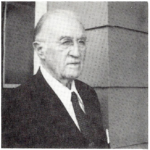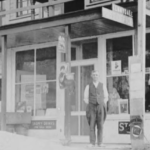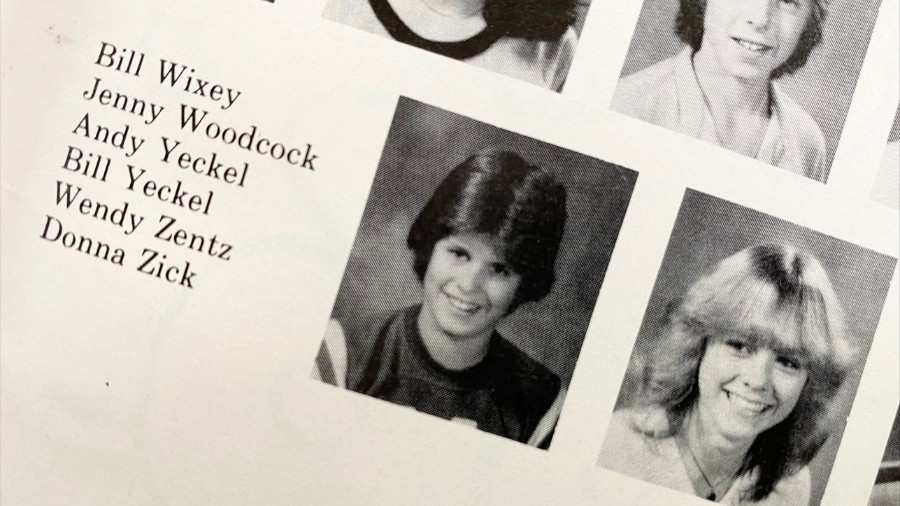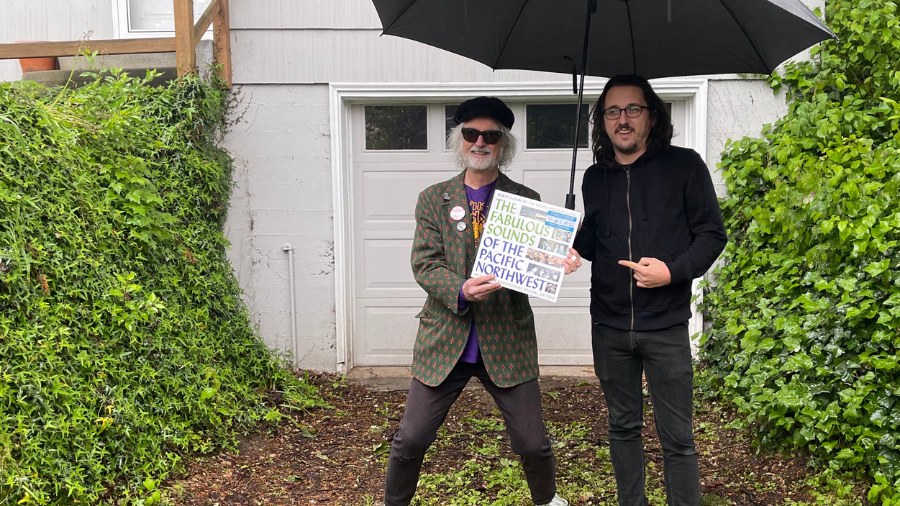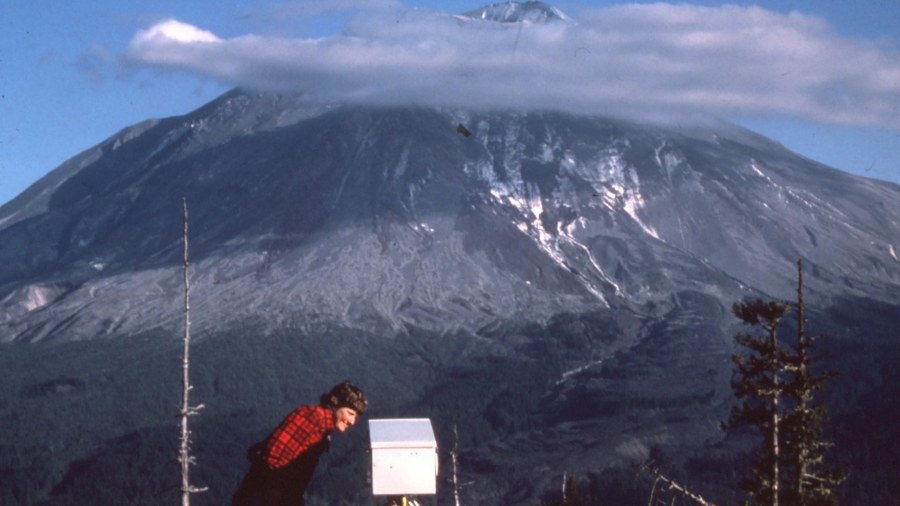Going postal: Oregon man’s forgotten quest to document Washington history
Aug 26, 2020, 9:37 AM
While the future of the U.S. Post Office might seem a bit uncertain these days, the many stories of its long past as an important part of communities around Washington are pretty secure – if hard to find.
And this is all because of an Oregon man who devoted his spare time to documenting the history of every single post office ever established in what’s now the Evergreen State, and to publishing a series of books called Postmarked Washington.
Guy Reed Ramsey died in April 1980, but he put his stamp on Northwest history and left behind an incredible legacy that he spent more than three decades putting together.
What Ramsey compiled is like an almanac of post office history in Washington from the 1850s to the 1960s, with the dates they were established and the names of the early postmasters, plus context for why each community wanted a post office – in the form of a well-written narrative of what was going on in that area, and who the local leaders were when the post office was first granted by the federal government. Ramsey also took photos of current and former post offices, and created maps and diagrams to show where post offices had once stood.
At first glance, the information Ramsey collected and saved might seem granular and obscure. But post office history is local history – it’s an unmatched and impartial indicator of growth and economic and social development from a time when the state we know now was first taking shape. And a post office, of course, meant vital connections to other parts of the country, and a place for the community to gather, since many of the earliest post offices in Washington were in private homes or co-located with simple retail establishments.
Ed Nolan is head of special collections for the Washington State Historical Society in Tacoma. He says it’s worth noting when an amateur like Ramsey creates a resource like Postmarked Washington.
“Hobbyists, which is what he was, sometimes produce pretty important works,” Nolan said. “Ramsey was a postal history collector, and that’s what also helped to fuel his interest in wanting to know where every [post office] was.”
One unfortunate thing is that only some of what Ramsey compiled was ever published and made accessible. The comprehensive information for the whole state has never issued in a single volume. Instead, historical societies in individual counties and regions published the work in sections. Each one is called Postmarked Washington, but with a different subtitle reflecting the specific county or region. Many of those are now out-of-print, hard-to-find, and often, when found, very expensive.
Ed Nolan consults those volumes regularly to answer research inquiries – about families, individual settlers, origins of names of towns and roads – and he says that beyond the valuable data that Ramsey compiled, he also conducted a lot of priceless interviews.
“He has so many anecdotal things where he has talked to old postmasters and postmistresses … it’s pretty phenomenal,” Nolan said, while pointing out that Ramsey was aware of the limitations of human memory. “He writes [in the introduction to each volume] that anything that’s [recorded as] oral history is subject to human recollection and the defects that that can create, but he tried to verify everything whenever possible.”
Guy Ramsey and his wife Ida Catherine Schneider Ramsey had two sons who are both now in their 80s. Both men have fond memories of their father and his post office project.
Lee Ramsey is 85. He’s a retired English professor who lives near Chicago. He says his dad was born in Missouri in the 1890s. He was the oldest boy in a family of seven, and had a pretty difficult early life.
“He was 16 years old when his father died,” Lee Ramsey said. “They didn’t have much money, so dad went to work at that time and he supported the family. My uncle Ralph [Guy Ramsey’s much younger brother] once told me many years later, ‘Your dad was my dad.’”
Guy Ramsey was in his early twenties when he served stateside in the Navy in World War I. In the 1920s, he attended the University of Washington and earned a graduate degree from the forestry school there in 1931. After a decade of work as an extension forester in Iowa – where he met his wife, and where their two sons were born – the family came back to the Northwest.
A job as a salesman for a Portland-based wood treatment product manufacturer meant the family settled in the Rose City.
For Guy Ramsey, being a salesmen in a timber-related industry meant a lot of driving around over a huge amount of territory and visiting rural communities in much of the West, including all of Washington. Ramsey’s road trips would often last for weeks or even months at a time.
“He didn’t have an awful lot, I guess, to do on trips when he was out by himself,” said Fred Ramsey, Guy Ramsey’s youngest son, a retired college professor in Corvallis, Oregon.
It was during his downtime on those trips, way back in the 1940s, when Guy Ramsey started visiting post offices, talking to people, and beginning to compile what would become Postmarked Washington.
But why post offices?
Both of his sons say that their father was a collector, in the broadest sense of the word. He was a birdwatcher and a photographer, particularly of flowers, but also of famous people who visited Portland. He had a home darkroom, and was particularly adept at hand-tinting – adding color to – black and white photos.
Oldest son Lee Ramsey says the post office focus probably grew from his father being a stamp collector and a collector of “postal covers,” which are used envelopes that have rare cancellation marks. Guy Ramsey had a huge collection of those, including from so-called “ghost post offices” – long-gone post offices that only existed for a few years in the 19th century – from around the Northwest. The stamp and postal cover collection was ultimately quite valuable; it was sold by the family at auction after Guy Ramsey passed away.
Collecting was so ingrained in his dad’s character, Lee Ramsey says, that while on his driving trips during World War II, Guy Ramsey even “collected” a certain type of hitchhiker.
As a rule, Guy Ramsey did not pick up hitchhikers, but “when he saw a hitchhiker with a uniform on, he picked them up,” Lee Ramsey said. “And he kept a little book in the in the backseat of the car, asking all of the all of the servicemen to sign their names,” creating a sort of guestbook for military hitchhikers.
Fred Ramsey said that on those long road trips in a company-provided Chevy sedan – the company bought a new one every two years – his father just loved talking to people about post offices and local postal history, even on family trips in the summertime.
“He would talk to people involved with the post offices that were in existence and in places that were not [in existence anymore], he’d ask around about when there was a post office, where it was,” Fred Ramsey said. “He’d take pictures, talk to people, and put together information on all of the post offices that had existed.”
Both sons say their dad was a pretty quiet guy, and that he likely didn’t bend any ears – other than those of his wife and kids – about his post office project. From their descriptions, it seems that Guy Ramsey took the post office project seriously without being obsessive about it; it was his focus, especially after retiring in 1960, but it wasn’t an all-consuming passion.
Guy Ramsey’s wife Ida — Fred and Lee’s mom — enjoyed traveling and exploring nature, and she shared her husband’s interest in things like wildflowers and bird watching.
But did Ida Ramsey share her husband’s passion for post offices?
“No,” said Lee Ramsey, after a short pause. “She tolerated it,” he continued, with a gentle chuckle.
The fact that he couldn’t interest any publisher in issuing Postmarked Washington in a comprehensive statewide edition irked Guy Ramsey, Lee Ramsey says, but his father never gave up. By reaching out directly to individual historical societies around Washington – perhaps tapping into his old traveling salesman playbook – Guy Ramsey did see several volumes published before his death, and several more were published in the years since. Incredibly, similar information that Guy Ramsey compiled while working in Iowa in the 1930s was published in a comprehensive edition in 1976; used copies of Postmarked Iowa can be found online for upwards of $200 at last check.
When Nolan at the Washington State Historical Society regularly consults Guy Ramsey’s work to answer research questions about Washington history, it helps make it clear why and how the material is so valuable.
The people with questions are “not interested in the post office, they’re interested in the fact that their family has some relationship to it,” Nolan said, emphasizing how Postmarked Washington isn’t just some esoteric reference resource for stamp collectors. Not long after Guy Ramsey died, the historical society honored him for his unique contribution to state history.
As for that comprehensive statewide work, it turns out that a complete copy of the manuscript for just such an edition of Postmarked Washington does exist in at least one place: the Washington State Library in Tumwater. The only trouble is, it’s on microfilm.
In an email Tuesday, Mary Paynton Schaff, Northwest Librarian/Legislative Services Liaison at the state library, said that some of Washington’s most populous counties – unfortunately – are among those that have never been issued in printed form.
“It appears that all 39 counties are represented in our microfilm,” Schaff wrote. But “13 counties were never published in print format, including King, Whatcom, Kitsap, Grays Harbor, Snohomish, Skagit, Walla Walla, Stevens, Columbia, Yakima, Garfield, Pend Oreille, and Ferry. There’s also branch information for just Seattle that appears to be unpublished as well.”
Schaff has been in touch with Fred Ramsey, and hopes to get the comprehensive statewide Postmarked Washington materials available via the library’s website.
Meanwhile, Fred and Lee Ramsey both say they never picked up their dad’s habit of visiting post offices as a hobby. But, it seems the practice wasn’t entirely without lasting effect on at least one of the two men.
“I notice them,” Fred Ramsey said, admitting that when he drives through a small town, he still reflexively registers the location of the local post office.
Either way, 40 years after their father passed away, both sons say Guy Ramsey would be pleased to know that his work was being appreciated and made more accessible – though he probably would’ve preferred a printed volume, of course.
Editor’s Note: Feliks Banel does contract work for the Washington State Historical Society as editor of the quarterly history magazine COLUMBIA.
You can hear Feliks every Wednesday and Friday morning on Seattle’s Morning News and read more from him here. If you have a story idea, please email Feliks here.



